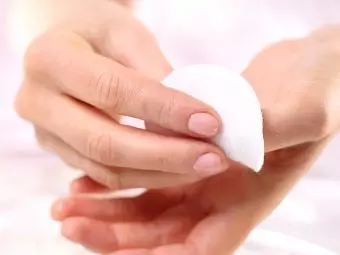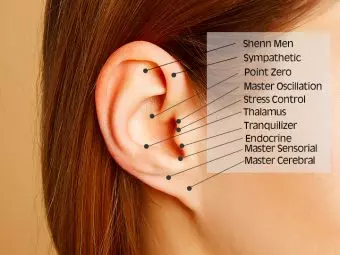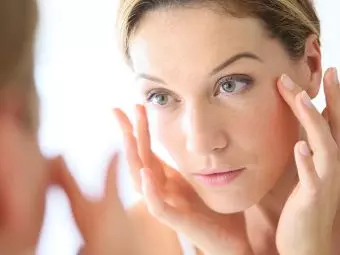Have you ever found yourself scratching your body after a run or workout for no apparent reason? Many people call this the runner’s itch. Runner’s itch while running can hit all of a sudden, out of nowhere.
For instance, you start jogging on the treadmill or track, only to notice an itching sensation spreading up your legs and back. It itches all over your body in a matter of seconds!
Please continue reading to learn more about this ailment, what causes it, and tips to avoid it!
With your sports shoes and best workout outfit on, you are all set for the day’s run. You get on the treadmill or track and begin to jog, only to find an itching sensation slowly creeping up your legs and your back. In a few seconds, it is itching all over your body!
Have you ever been in a situation where your body starts itching after a run or workout for no apparent reason? Well, many refer to this as the runner’s itch. Do you want to know more about this condition, its causes, and how to prevent it? Read on!
In This Article
What Is Runner’s Itch?
Runner’s itch, as the term suggests, is a sudden onset of bouts of itching or symptoms of an allergy following a run or exercise. Listed below are the most common causes of runner’s itch.
What Causes Runner’s Itch?
There are a number of conditions, allergies, and other factors that could be causing your legs to itch while running. They include:
- Exercise-Induced Urticaria
This condition is also referred to as cholinergic urticaria. It results in itchy red hives, along with other allergic symptoms. Physical activity that increases the core temperature and causes you to sweat is one of the most common causes of this condition (1).
- Exercise-Induced Anaphylaxis
This is a rare condition in which anaphylaxis occurs post a physical activity of any kind. Anaphylaxis is a deadly allergic reaction that occurs when you are exposed to anything you are allergic to. In some cases, such reactions may also be triggered by exercise or running (2).
- Cold Urticaria
Cold urticaria is an allergic reaction to cold temperatures (3). It can cause your skin to develop red and itchy hives when exposed to cold. Its symptoms may be mild or severe and may vary from one individual to another.
- Circulation Problems
In some cases, lack of running or jumping into a sprint after a long interval can cause your legs to itch. If you have not been physically active lately, the capillaries in your legs can collapse slightly. The sudden bout of exercise may need your capillaries to expand to allow increased blood flow. This expansion sends “itchy signals” to your brain, thereby causing your legs to itch while running. This condition is most likely to ease after running for a few days.
- Allergic Reactions
Allergic reactions like contact dermatitis or eczema could also cause runner’s itch. If your skin is allergic to certain detergents or clothing that you have worn while running, it could develop an allergic reaction to the irritant and may begin to itch (4). Sweating while running tends to make the itching more severe.
- Dry Skin
In general, those with dry skin are more prone to itching (5). Hence, if you have xerosis or dry skin, you are more likely to experience itching while running.
Almost all conditions that trigger itchy legs can be rather easily managed by treating the underlying cause, such as the use of antihistamines.
You can also follow the tips and techniques discussed below to prevent itching.
What Can You Do To Prevent Itching?
- Warm up for at least 10 minutes before a workout or run.
- Take short intervals between any physical activity.
- If the itching is triggered by cold temperature, wear layers of clothing to cover the exposed body parts while running.
- If you experience exercise-induced anaphylaxis, opt for a less strenuous workout like swimming.
- Have a body bath daily.
- Moisturize your skin daily.
- Wear protective clothing like knee-length socks if you are living in an area with allergens like poison ivy.
- Drink water at least 45 minutes before and after your workout. Dehydration causes the release of histamine in your skin, leading to itching. Increasing your water intake can counteract this effect.
Most cases of itchy legs while running, excluding exercise-induced anaphylaxis, are not of much concern. Exercise-induced anaphylaxis can be life-threatening and needs to be treated medically immediately. The other causes can be managed quite easily by taking prescription medications for the underlying condition. Taking antihistamines and applying Calamine lotion can relieve the symptoms of itching.
A runner’s itch during running usually implies an allergic reaction. It may also be caused due to dry skin, eczema, or if the body faces circulatory problems. This itch can be relieved easily with an appropriate dose of antihistamines. You can also apply topical creams to ease the pain sensation. Ensure to warm up before starting your workout routine, moisturize and take a bath daily, and drink plenty of water before exercising. However, if the condition persists along with other worrying symptoms, consult your healthcare provider to diagnose any underlying medical condition.
Frequently Asked Questions
Why does walking in jeans cause itchy legs?
If you wear a pair of jeans without moisturizing your legs properly, it might cause itching. Hair regrowth or ingrown hair may also trigger itchiness while walking in a pair of jeans.
Can lactic acid relieve itching?
Yes, lactic acid formulations may help alleviate the symptoms of dry and itching skin due to its moisturizing and antipruritic properties (6).
Subscribe
References
- “New Etiology of Cholinergic Urticaria.” Current Problems in Dermatology, US National Library Of Medicine.
- “Exercise-Induced Anaphylaxis: An Update on Diagnosis and Treatment” Current Allergy and Asthma Reports, US National Library Of Medicine.
- “Cold urticaria.” Journal of Investigative Dermatology Symposium Proceedings, US National Library Of Medicine.
- “Allergic contact dermatitis: Overview” Institute for Quality and Efficiency in Health Care, US National Library Of Medicine.
- “Itch-associated response induced by experimental dry skin in mice.” Japanese Journal of Pharmacology, US National Library Of Medicine.
- “An evaluation of the moisturizing and anti-itch effects of a lactic acid and pramoxine hydrochloride cream.” Cutis, US National Library Of Medicine.
Related
The following two tabs change content below.
- Author
- Reviewer
Shaheen Naser
Shaheen holds a postgraduate degree in Human Genetics and Molecular Biology. She is a Geneticist with proficiency in Biotechnology, Immunology,… more
Dr. Bhakti Kapse
(MBBS)Dr. Bhakti Kapse is a General Practitioner with over 10 years of experience in family medicine. She obtained her Bachelor… more



 How To Take Care Of A New Tattoo And Safety Precautions
How To Take Care Of A New Tattoo And Safety Precautions I Slept With An Onion In My Sock And This Is What Happened
I Slept With An Onion In My Sock And This Is What Happened 6 Brilliant DIY Ideas For Nail Polish Removers
6 Brilliant DIY Ideas For Nail Polish Removers Acupressure Points On Ears: What Are They And Do They Work?
Acupressure Points On Ears: What Are They And Do They Work? 8 Best Ways To Increase Oxygen Levels In Blood
8 Best Ways To Increase Oxygen Levels In Blood 20 Most Beautiful Flowers That Are Commonly Available In India
20 Most Beautiful Flowers That Are Commonly Available In India Top 5 Online Beauty Products Sites For Shopping In India
Top 5 Online Beauty Products Sites For Shopping In India Top 19 Bindi Designs For You To Try
Top 19 Bindi Designs For You To Try 11 Things You Should Never Put On Your Face
11 Things You Should Never Put On Your Face